Nuer may refer to:
- Nuer people
- Nuer language or Thok Nath
Nuer may refer to:
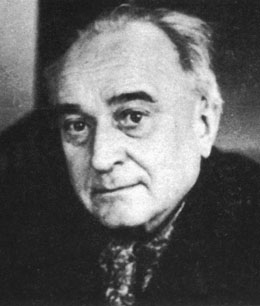
Sir Edward Evan Evans-Pritchard FBA FRAI was an English anthropologist who was instrumental in the development of social anthropology. He was Professor of Social Anthropology at the University of Oxford from 1946 to 1970.
The White Army or White armies are common collective names for the armed formations of the White movement and anti-Soviet governments during the Civil War in Russia (1917–1923)

The Nuer people are a Nilotic ethnic group concentrated in the Greater Upper Nile region of South Sudan. They also live in the Ethiopian region of Gambella. The Nuer speak the Nuer language, which belongs to the Nilotic language family. They are the second largest ethnic group in South Sudan. The Nuer people are pastoralists who herd cattle for a living. Their cattle serve as companions and define their lifestyle. The Nuer call themselves "Naath".
The Nuer language (Thok Naath) ("people's language") is a Nilotic language of the Western Nilotic group. It is spoken by the Nuer people of South Sudan and in western Ethiopia (region of Gambela). The language is very similar to Dinka and Atuot.

The Gambela Region, officially the Gambela Peoples' Region, is a regional state in western Ethiopia, bordering South Sudan. Previously known as Region 12, its capital is Gambela. The Region is situated between the Baro and Akobo Rivers, with its western part including the Baro River.
NWA or Nwa most commonly refers to:
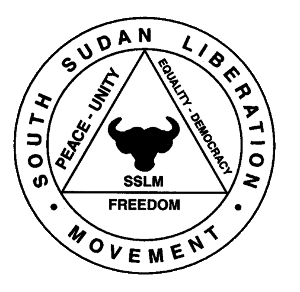
The South Sudan Liberation Movement (SSLM) is an armed group that operates in the Upper Nile Region of South Sudan. The group's creation was announced in November 1999 by people of the Nuer ethnicity who were in both the rebel Sudan People's Liberation Army (SPLA) and the government-allied South Sudan Defence Forces (SSDF) gathered in Waat. The SSLM was declared to be unaligned in the Second Sudanese Civil War, then entering its sixteenth year. The name "South Sudan Liberation Movement" was decided upon the next year, borrowing from the earlier Southern Sudan Liberation Movement, which existed in the 1980s.
The Western Nilotic languages are one of the three primary branches of the Nilotic languages, along with the Eastern Nilotic languages and Southern Nilotic languages; Themselves belonging to the Eastern Sudanic subfamily of Nilo-Saharan. The about 22 Western Nilotic languages are spoken in an area ranging from southwestern Ethiopia and South Sudan via northeastern Democratic Republic of the Congo and northern Uganda to southwestern Kenya.
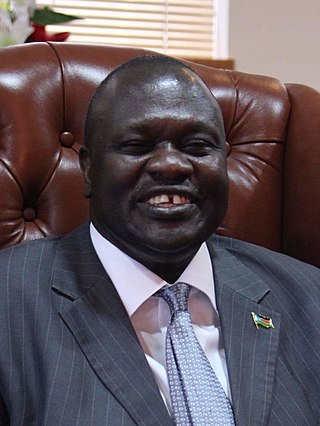
Dr. Riek Machar Teny Dhurgon is a South Sudanese politician who serves as the First Vice President of South Sudan.
The Murle are a Surmic ethnic group inhabiting the Pibor County and Boma area in Greater Pibor Administrative area, South Sudan, as well as parts of southwestern Ethiopia. They have also been referred as Beir by the Dinka and as Jebe by the Luo and Nuer, among others. The Murle speak the Murle language, which is part of the Surmic language family. The language cluster includes some adjoining groups in Sudan, as well as some non-contiguous Surmic populations in southwestern Ethiopia.
In South Sudan, a ghost marriage is a marriage where a deceased groom is replaced by his brother. The brother serves as a stand in to the bride, and any resulting children are considered children of the deceased spouse. This unusual type of marriage is nearly exclusive to the Dinka (Jieng), Nuer, and Atuot people of South Sudan although instances of such marriages have also occurred in France. These tribes overlap in cultural practices, potentially due to the fact that all of these tribes are cattle-herding pastoralists.
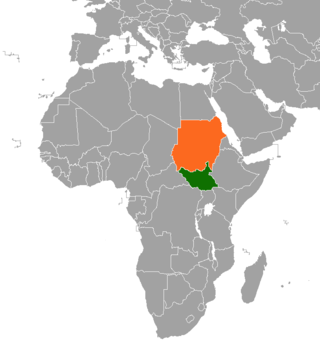
Sudanese nomadic conflicts are non-state conflicts between rival nomadic tribes taking place in the territory of Sudan and, since 2011, South Sudan. Conflict between nomadic tribes in Sudan is common, with fights breaking out over scarce resources, including grazing land, cattle and drinking water. Some of the tribes involved in these clashes have been the Messiria, Maalia, Rizeigat and Bani Hussein Arabic tribes inhabiting Darfur and West Kordofan, and the Dinka, Nuer and Murle African ethnic groups inhabiting South Sudan. Conflicts have been fueled by other major wars taking place in the same regions, in particular the Second Sudanese Civil War, the War in Darfur and the Sudanese conflict in South Kordofan and Blue Nile.

The 2009 Sobat River ambush was a battle between Jikany Nuer tribesmen and the Sudanese People's Liberation Army (SPLA) which was escorting a United Nations (UN) aid convoy on 12 June 2009.
The Jikany Nuer are a section of the Nuer people who mainly live in the eastern part of Upper Nile state in South Sudan, particularly around Nasir in Nasir County.
Ayod County is an administrative area in Jonglei State, South Sudan, with headquarters in Ayod. Its inhabited by Gawaar Nuer categorically composed by major clans of Chieng- Kapel, Bhaang, Chieng -Thony, Chieng - Nyadakuon, Jithiep, Chieng-Pear, and Chieng-Nyaiguak. In the January 2011 referendum the results were unanimously in favor of independence from Sudan.
Ethnic violence in South Sudan has a long history among South Sudan's varied ethnic groups. South Sudan has 64 tribes with the largest being the Dinkas, who constitute about 35% of the population and predominate in government. The second largest are the Nuers. Conflict is often aggravated among nomadic groups over the issue of cattle and grazing land and is part of the wider Sudanese nomadic conflicts.

The Nuer White Army, sometimes decapitalised as the "white army", is a semi-official name for a militant organisation formed by the Nuer people of central and eastern Greater Upper Nile in modern-day South Sudan as early as 1991. According to the Small Arms Survey, it arose from the 1991 schism within the Sudan People's Liberation Movement/Army (SPLM/A) for the dual purpose of defending Nuer cattle herds from neighbouring groups and fighting in the Second Sudanese Civil War between the SPLM/A and the Sudanese government.
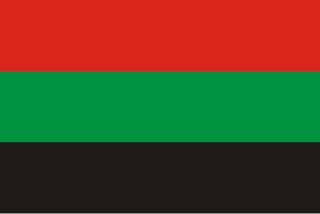
The Gambela People's Liberation Movement was a rebel group in the Gambela Region in Ethiopia. The GPLM was founded by Anuak dissidents during the Derg and Woyane regime. The organization remained dominated by Anuaks. Agwa Alemu was the chairman of the GPLM.
South Sudanese Americans are an ethnic group of Americans of South Sudanese ancestry, or South Sudanese people who have American citizenship. South Sudanese Americans can include American descendants to South Sudanese ancestors or South Sudanese immigrants who obtained an American citizenship.
The disarmament of the Lou Nuer was a forcible disarmament campaign undertaken by the SPLA in Southern Sudan in December 2005. While other groups had been peacefully disarmed, the Lou section of the Nuer in Northern Jonglei State refused to comply. The SPLA organized a force under Peter Bol Kong to forcibly disarm the Lou Nuer, whose White Army resisted until a defeat in the battle of Motot, after which they fled the area.